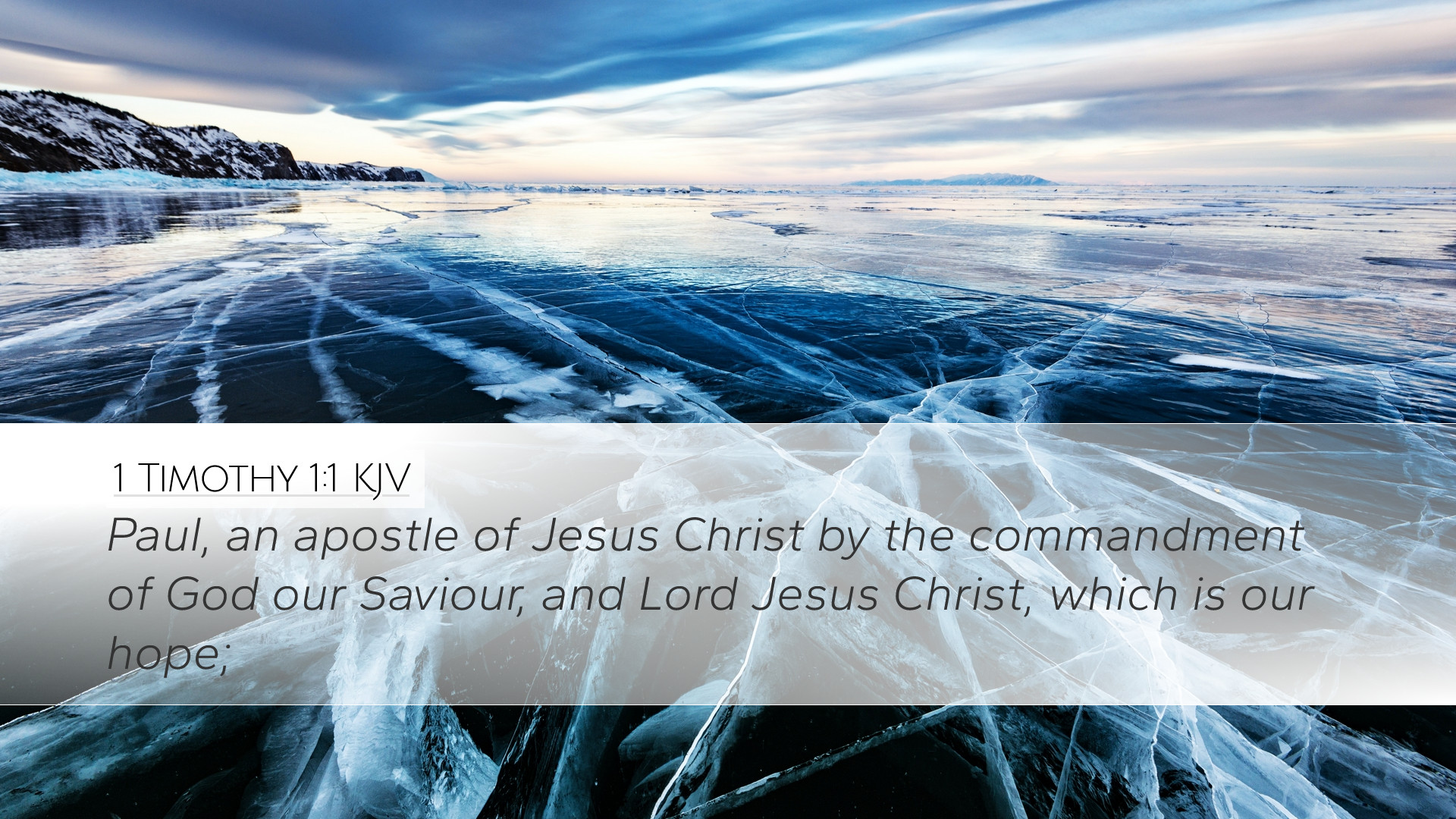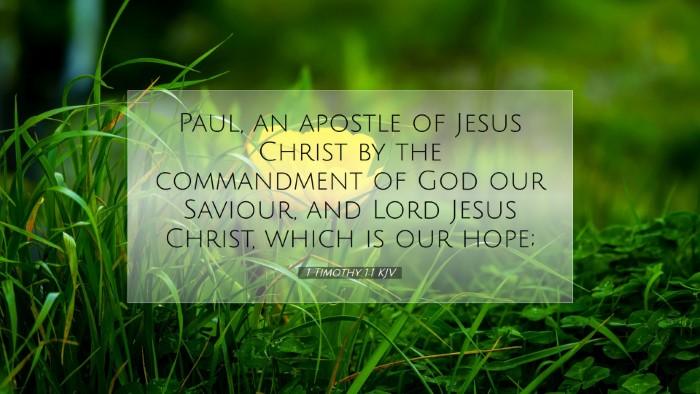Old Testament
Genesis Exodus Leviticus Numbers Deuteronomy Joshua Judges Ruth 1 Samuel 2 Samuel 1 Kings 2 Kings 1 Chronicles 2 Chronicles Ezra Nehemiah Esther Job Psalms Proverbs Ecclesiastes Song of Solomon Isaiah Jeremiah Lamentations Ezekiel Daniel Hosea Joel Amos Obadiah Jonah Micah Nahum Habakkuk Zephaniah Haggai Zechariah Malachi1 Timothy 1:1
1 Timothy 1:1 KJV
Paul, an apostle of Jesus Christ by the commandment of God our Saviour, and Lord Jesus Christ, which is our hope;
1 Timothy 1:1 Bible Commentary
Commentary on 1 Timothy 1:1
This verse serves as the opening of one of the Apostle Paul's most significant letters to Timothy, a young pastor. In this commentary, we will explore the insights from various public domain sources, including those of Matthew Henry, Albert Barnes, and Adam Clarke. We will delve into the context, implications, and theological significance of the verse.
Text of 1 Timothy 1:1
"Paul, an apostle of Jesus Christ, by the commandment of God our Saviour, and Lord Jesus Christ, which is our hope;"
Introduction to the Apostolic Authority
Paul's Identity:
Paul begins this epistle by affirming his identity as an apostle. This is significant as it establishes his authority to write this letter and provides a foundation for the instructions that follow. According to Adam Clarke, Paul refers to himself as an apostle to emphasize that his mission and commission were divinely initiated. He does not assert any human authority but bases his role solely on God's mandate.
The Phrase "by the Commandment of God"
Divine Commission:
Henry reflects on the use of the phrase "by the commandment of God our Saviour." This indicates that Paul's apostleship is not a matter of personal aspiration but a divine appointment. Paul is conveying that his words carry not only his authority but also the authority of God, which demands respect and obedience. This underscores the serious responsibility that comes with such a calling.
The Titles of God and Christ
God as Saviour:
The term "our Saviour" reveals both the character and the relational aspect of God to believers. Barnes comments that Paul’s mention of God as saviour emphasizes the divine initiative in humanity's redemptive history. It is a reminder to Timothy and the church that salvation originates from God alone, affirming the necessity of grace.
Jesus Christ as Hope:
Paul continues with the designation of Jesus as "Lord," which speaks to His sovereignty. Additionally, referring to Christ as "our hope" highlights the centrality of hope in Christian doctrine. Clarke notes that hope in Christ anchors believers amidst trials and uncertainties. This hope is not abstract but is rooted in the person and work of Jesus, enriching the believer's experience of faith.
The Context of the Letter
Purpose of the Epistle:
Understanding the context of this letter is vital for its interpretation. Henry argues that Paul wrote to Timothy to address issues in the Ephesian church, namely to counter false teachings and to uphold sound doctrine. This opening verse sets the tone for the exhortations that follow, framing them within the authority of God and the hope found in Christ.
Theological Implications
Authority and Responsibility:
This letter reflects the interplay of authority and responsibility within the church. The divine mandate given to Paul extends to Timothy, emphasizing the church's need for sound leaders who adhere to biblical truths. Barnes highlights that just as Paul was commanded, so too is Timothy called to be vigilant in guarding the truth of the Gospel.
Conclusion and Reflections
In closing, 1 Timothy 1:1 serves as a profound reminder of the divine foundation of ministry and the essential role of hope in the life of believers. For pastors, students, and theologians, this verse encapsulates critical themes of authority, responsibility, and the nature of God’s salvific work in Christ. As they meditate on these truths, they are encouraged to anchor their faith and ministry in the divine commandment and the hope provided through Jesus Christ.


